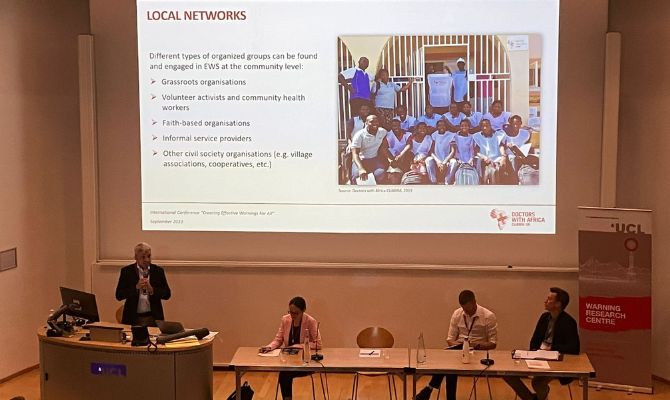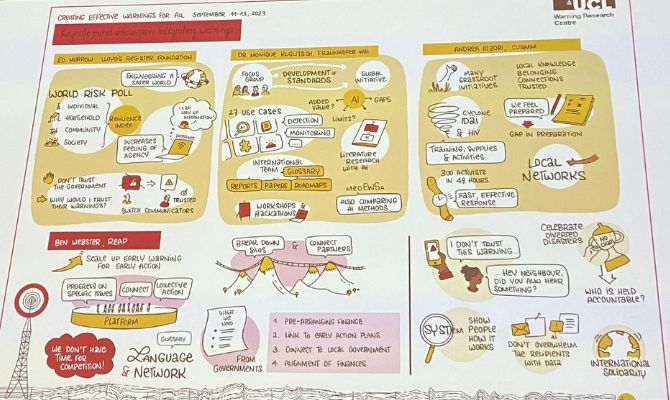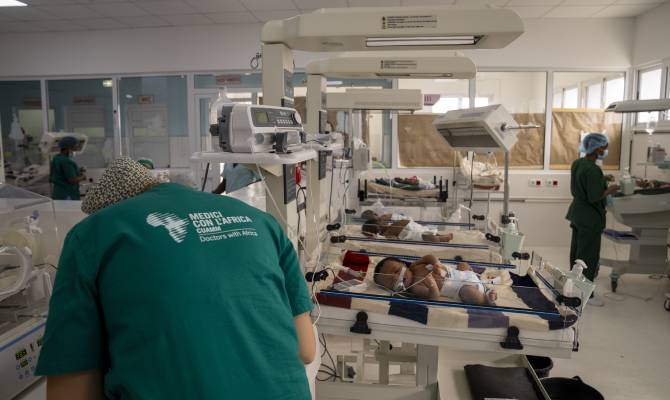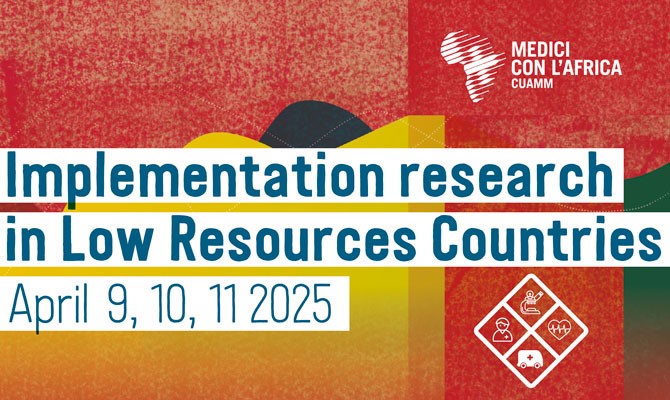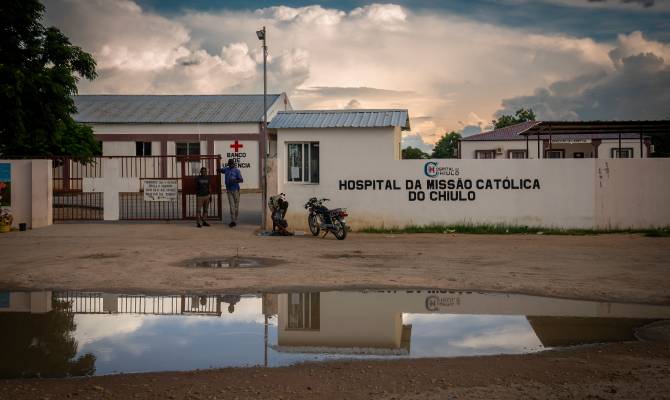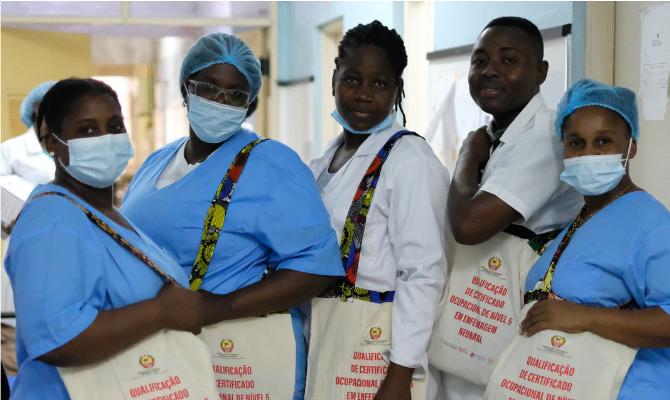Doctors with Africa CUAMM participated in the first international conference hosted by the UCL Warning Research Centre on September 11-13, under the theme Creating effective warnings for all. The 3-days conference aimed to provide an opportunity to break down silos between stakeholders, sectors, hazard types, geographies, and technologies used in warnings to generate better understanding and more effective warnings in the future, for all.
Many were the speakers who took the floor over the days, from UK Government officials to academic representatives, from artists to media experts to NGOs workers. UCL is indeed one of the world’s leading research institutions and the conference, supported by CUAMM, was an occasion to learn from research knowledge, share best practice and explore effective solutions. The matter was at the core of the keynote panel discussion Integrating warnings over space and time in which CUAMM took part by sharing the experience of collaboration with local communities and organizations on the ground engaged during, among others, the Ebola breakout in Sierra Leone in 2014, Idai cyclone in Mozambique in 2019 and the Covid-19 pandemic in Tanzania. Experiences that have proven the importance of designing and implementing a warning system based on prevention and preparedness which is able to lead a timely response hence mitigate the effects and vulnerabilities and crisis.
«In order to create accessible, effective and sustainable preparedness and early warning system is crucial to create partnership with existing local networks of civil society organizations and faith-based organizations. They are at the frontline, trusted by the community and with true knowledge of the context» said Andrea Atzori – Head of International Relations.
The conference also offered the participant the opportunity to collaborate in working groups for a disaster management exercise, a practical way to get to know better the complexity of interventions during crisis and emergencies as well as the crucial role of prevention and preperdness for effective and timely warnings. At the end of the exercise, the audience discussed with Veronica Censi – CUAMM Regional Partnership and Advocacy Manager the case study of Epidemic and Pandemic warnings in Tanzania during COVID-19 and CUAMM response to the health emergency.

«To liaise with research centers is key to better understand what needs to be done to prevent and mitigate disasters, involving all actors, at every level, from communities on the ground to central and peripheral authorities but also academies and NGOs on the ground. CUAMM recognizes the practical implications of scientific collaborations hence it is commitment is twofold: on the one hand operational, through field activities and on the other hand strategic, in research, to better address the new global challenges” Giovanni Putoto – Programme Manager.
The number of research centers with which CUAMM partners continued to rise, increasing from 68 in 2021 to 76 in 2022 figures that confirm the importance CUAMM gives to developing scientific partnerships, producing quality research by connecting experts from around the world. Doctors with Africa CUAMM is pleased to collaborate and support the UCL Warning Research Centre (WRC), a joint venture between the Department of Science and Technology Studies and the Institute of Risk and Disaster Reduction focusing on all aspects in relation to warnings for all forms of risks and disasters. Founded in 2020, the WRC is an interdepartmental centre bringing together expertise already established at UCL with warning expertise at universities globally to work with businesses, government, non-governmental, and intergovernmental organisations to address the growing need for effective warning and alert systems via cutting-edge research, policy guidance, applications, and collaborative expertise.


